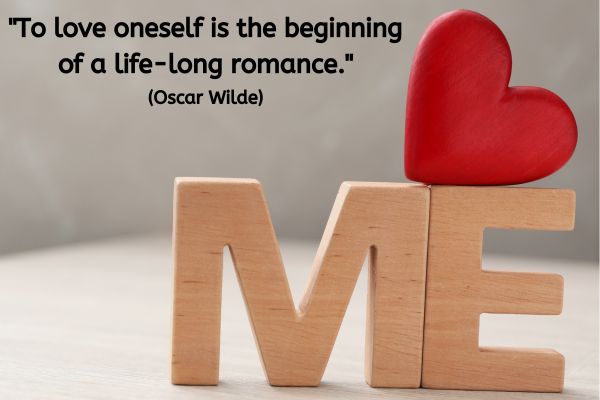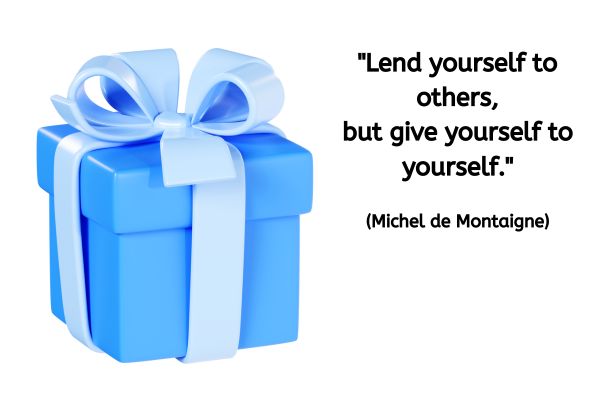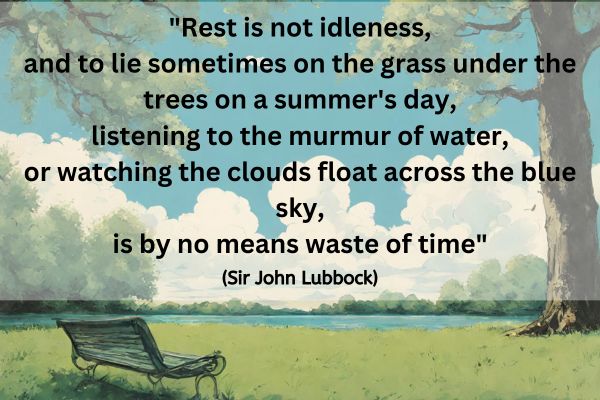Cultivating Self-Care: A Life-Long Journey of Kindness

“To love oneself is the beginning of a life-long romance.” (Oscar Wilde)
Yesterday was International Self-Care Day, and I had intended to write this post then. However, when I sat down to write and asked myself what I could do in that moment to take better care of myself, the answer I got was to write this a day later and take a nap—which cleared up the start of a headache right away.
In the past, I would have powered through and written the post regardless. Now, I analyse and prioritize in a much kinder manner to myself. In fact, asking myself, “What can I do in this moment to be kinder to myself?” has become a mental practice I associate with self-care.
I could beat myself up for posting this a day after the actual International Self-Care Day, but why would I do that? I find that posts like this often reach the people who need them most at the right time for them—not necessarily on an arbitrary, declared international day. Moreover, taking care and being kind to yourself is a habit that should extend beyond just one day a year.
So, in that vein, what can you do right now to be kinder to yourself?
I invite you to actually take a moment to ask yourself that question and see what the answer is for you—I can wait while you do that! 😉
I hope you took that moment, and if you’re still reading, I’m guessing your answer wasn’t to stop what you’re doing and have a nap. Maybe it was to adjust your posture, or perhaps just take a moment to focus on your breathing and the simplicity that can bring. Did you take a second to drink more water or change the temperature of the room you’re in?
For some, the answer might have been something with a larger impact—perhaps you realized you didn’t need to dwell on a habitual thought that usually brings you down or had a fresh perspective and saw that you had been looking at something in an unhelpful way.
You may or may not have been surprised by the answer that came to you. If it was followed by a judgmental thought like “I should have known to do that already,” remember: you did know, which is why the answer came to you. And has beating yourself up with such judgmental thinking ever helped you remember faster? Probably not. So how about skipping the self-judgment and seeing what a difference that makes?
If that seems like a big leap, then consider doing it as an experiment. You get to choose how long you run the experiment for—start with a small stretch of time and, if you find that you don’t dislike the experience, extend the experiment a bit longer. By approaching it this way, you can observe the effects of being kinder to yourself without feeling pressured to make a permanent change immediately. Think of it as giving yourself the grace to explore a new way of thinking and being.
Remember, self-care and kindness towards oneself are not confined to a single day, but are ongoing practices that enrich our lives daily. By experimenting with small acts of self-compassion and observing their impact, you can gradually cultivate a more nurturing relationship with yourself.
So today, and every day, ask yourself: “What can I do right now to be kinder to myself?” Embrace the answers that come to you, and let them guide you towards a more balanced and fulfilling life. After all, loving oneself truly is the beginning of a life-long romance.
Thank you for taking the time to read this post. If it resonated with you, feel free to share your thoughts or your own self-care practices in the comments below.
About Jen Waller

Jen Waller is a transformative coach dedicated to empowering individuals to get out of their own way and make a meaningful impact in the world. With an impactful, nurturing coaching style, Jen supports clients in unlocking their potential and achieving their goals. As an experienced coach and trainer, she guides clients from self-doubt to success.
Discover how Jen can support you to get out of your own way here.



